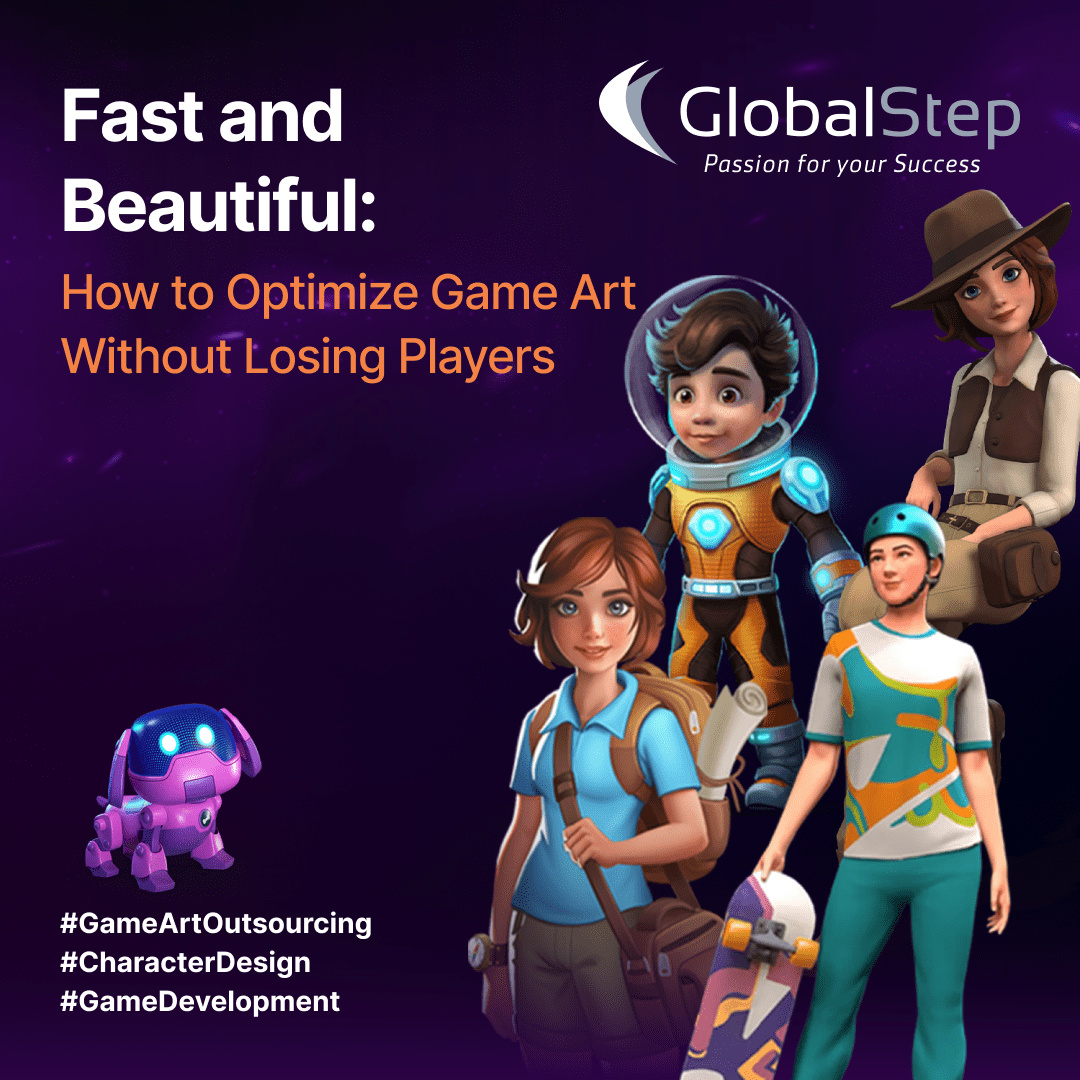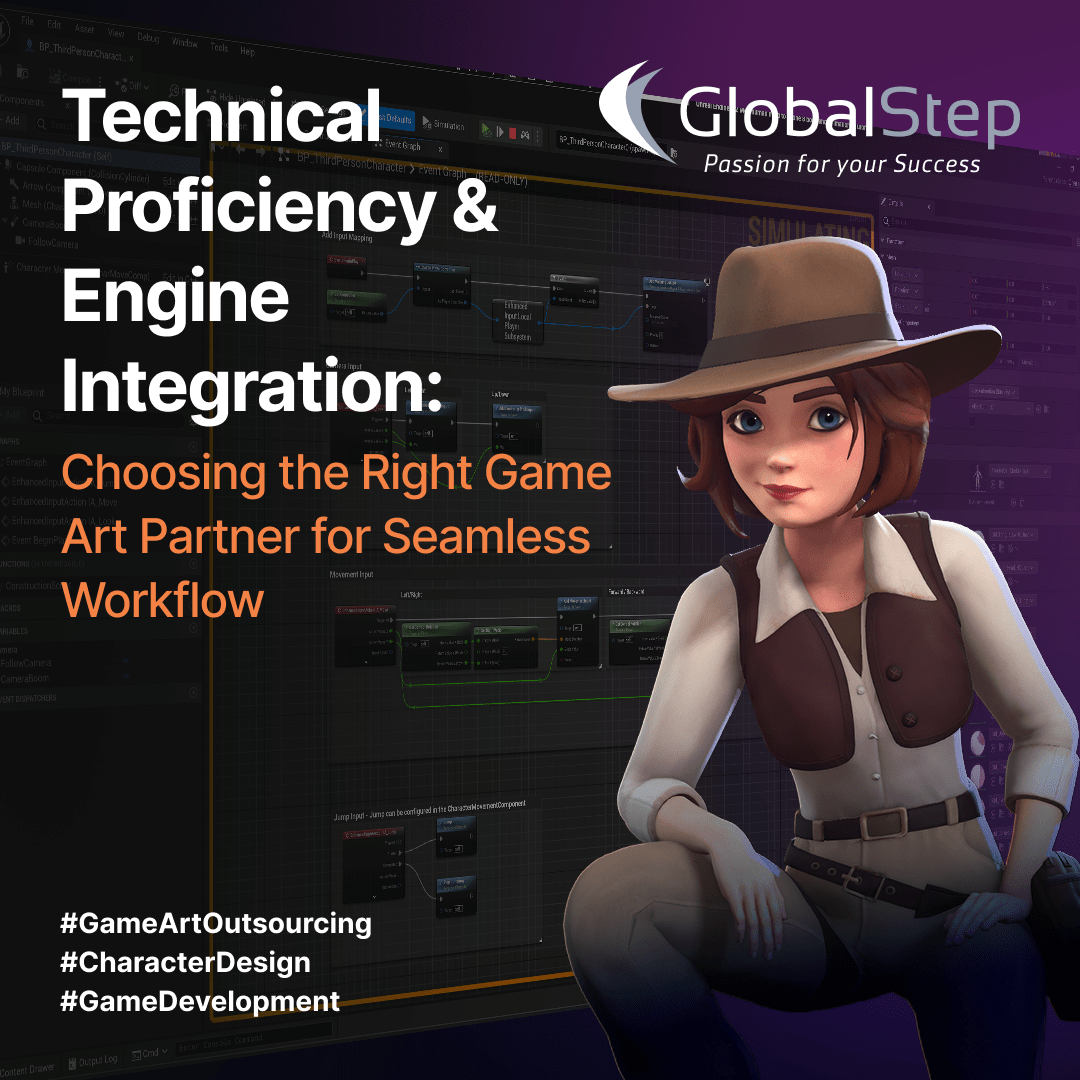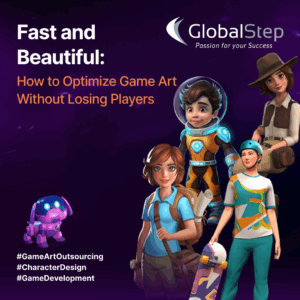In this article, we delve into the different art archetypes that bring games to life and explore how they contribute to the success and vision of developers.

Developers and gamers agree that the art in video gaming is an essential part of a game, used to tell stories and create immersive worlds. Since the invention of video games, art has changed the way people play. It creates a storyline that can immerse players deeper in the game’s world than just looking at static pictures on a screen. Some of the most memorable games ever made employed distinctive art styles that bring the developer’s vision to life.
Formulating Ideas with 2D/3D Concept Art: The Foundation for Any Game
Every game has a simple idea behind it at first. Concept artists take these abstract ideas and sketches and turn them into detailed scenes that make you dream about playing the game. For instance, “The Witcher 3: Wild Hunt” draws its players in with detailed concept art which builds their interest in the game world even further.
2D/3D Character Design : Creating Characters who are Loved and Hated
Characters are one of the most important aspects of any story because they drive plots forward while connecting with audiences on deep emotional levels, requiring skillful designers to execute. Beloved Mario and Luigi are the best examples of this. Meanwhile, fearsome Kratos from “God of War” gives us insight into how connections with a character can be established throughout different game sequels or spin-offs released over the years on various platforms. This kind of iconicity speaks volumes, doesn’t it? These titles also demonstrate that such protagonists not only determine the overall game setting but influence mechanics, too. A comparison between “Overwatch” versus “Apex Legends” shows that when both visual flair and diverse abilities combine within unique character silhouettes, games cement themselves as legendary because of the characters.
Making Cool Weapons with Artful Design: Legends Do Not Die Out So Easily
Weapons in video games can become a part of a player’s identity. They show strength, skill and how far someone has advanced in the game. Unique weapons should be created regularly in order to not lose the audience’s interest in playing the game in longevity. Designing cool-looking weapons is another important part of this process; it means that there have to be special items that will catch players’ eyes at once or they won’t find them appealing enough! The “Dark Souls” series, featuring tough gameplay encounters and deep lore contained within them, is widely acknowledged as one of the most immersive RPG universes out there today mainly due to meticulous weapon art accompanied by careful selection within various circumstances.
Setting the Scene: Building Immersive Gaming Environments
Video games are like alternate realities waiting to be explored. Good scenery is necessary for making places that draw players in and convey the plotline. The “BioShock” series does this well with its environment storytelling — from the eerie depths of Rapture to the sunlit streets of Columbia’s Spanish Civil War setting(s), atmospheric designs transport us to hauntingly beautiful realms that enhance the narrative while providing unforgettable adventures for gamers.
Getting Detailed with Props for Added Realism and Depth in Your Virtual World
The design of a space will only get you so far, but adding in some physical objects can make it feel more vivid and grounded. Small things like books lying around, broken pieces of pottery strewn across the floor, or even just having candles flickering in dark corners may seem insignificant at first sight. However, these are the sorts of details that ”sell” an environment’s believability while also immersing players further into that setting mentally. “Skyrim: Elder Scrolls V” is a great example of this as they’ve littered their world with all sorts of objects — from little bits going on outside houses right down to individual rooms inside dungeons.
Art Direction Can Tell Stories, too

Concept art, character designs and weapon art are all part of the narrative in a video game. Today, video games offer an artistic blend of different art styles blended into one game, which keeps things interesting throughout the experience. “The Legend Of Zelda: Breath Of The Wild” had retro-style mini-games included as a nod towards the series’ past, for example — but small surprises like these make playing through them even more enjoyable overall!
The key element to storytelling in video games now is through visual artistry. It’s not just the environment that tells a story or sets up where you are (although these can do such things very well); character designs, weapon models and concept sketches for levels are equally important elements that developers use when trying to communicate their vision of a game world with players so they feel drawn into it as much as possible while experiencing unique gameplay, too.
For more than 15 years, GlobalStep has been a leading player in the video game industry. We know how to create unforgettable games through the power of video game art. Our art studio is staffed by artists with expertise in different genres, types of games and platforms. We bring characters to life by conceiving them; we model intricate props that help set scenes – all aimed at fuelling imagination during gameplay.
Our long-term experience throughout the lifecycle of a game (from concept to Live Ops) makes us distinct from others. We work closely with developers so that their vision can be realized excellently at any stage. This may involve collaborating with storytellers as well as technical experts and otherswhose input ensures every feature is designed or modified to create an immersive world for players.
Storytelling in video games owes its success to artistic impressions within various media and in all areas of a game.
Whether an independent developer’s unique concept or a well-established studio’s ambitious project our amazing team of artists can create something truly special that players around the world won’t forget.
GlobalStep can help you build the immersive gaming experience of your wildest imagination. Request a meetingwith us to get started!
Author – Lokesh Suri
Lokesh works as Vice President of the GlobalStep Art Studio and also heads the VideoGame Co-Development studio.





